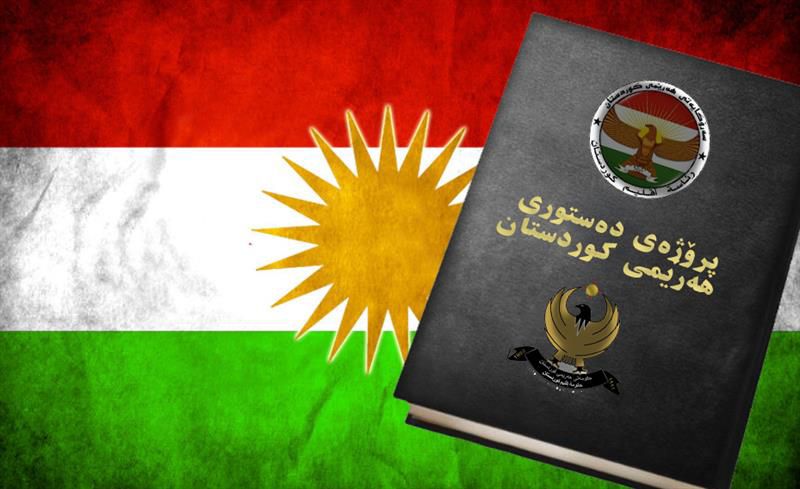The Kurdish Globe outlines the stages of constitutional drafting
The Kurdistan Region’s constitution, a critical project that has been attempted five times in the past 22 years, remains unfinished. All eyes are on the sixth parliamentary session, which is expected to resolve the issue and finally establish the Kurdistan Region’s constitution. This would then be voted on, as all parties agree that the constitution is key to resolving many of the region’s challenges.
In this context, Sherwan Haydari, former Minister of Justice for the Kurdistan Region, told Kurdish Globe: “The constitution is a set of principles and rules that establish the state, region, and its entities. It determines the form of governance, rights, and duties. The idea of drafting the Kurdistan Region’s constitution dates back to the aftermath of the 1991 uprising, when the Kurdistan Parliament included it in its agenda in 1992. Several legal committees were established, and a draft was prepared and approved, awaiting only a referendum and vote. However, due to political disputes and conflicts, more than 29 years later, the Kurdistan Region still lacks a constitution.”
He added, “According to Law No. 4 of 2015, the Kurdistan Parliament is to form a 20-member committee, but it remains unclear whether this parliamentary session will amend that law or continue as it is, since the political landscape has changed. The Parliament will vote on the committee’s composition. Once the constitution is prepared and voted on, it will be put to a referendum and pass with a simple majority.”
Karzan Hanarei, a lawyer, told Kurdish Globe: “The primary reason for the lack of a constitution in the Kurdistan Region is our own doing. Political parties often engage in political maneuvering, using this national issue to oppose one another, serve party interests, and sometimes gather votes during elections. The constitution is the foundation of all laws; every law passed by Parliament must not contradict it. Therefore, the constitution ensures the supremacy of laws and rights by defining them clearly.”
He further explained, “Having a written constitution for Kurdistan is essential. With it, many problems will be resolved. Everyone will understand their rights and duties, our country’s politics will become clearer, and powers will be better defined. The constitution is not for a single political party or faction; it belongs to all people and society. It protects the general interests of the region, entity, and state—not just those of an individual, company, or party, but of the entire Kurdish population.”
Hanarei emphasized the importance of involving all social groups in the process, ensuring the drafting committee takes adequate time (no less than several months) to gather and incorporate everyone’s views. The committee must also represent all components, nationalities, and religions, safeguarding their rights and specific characteristics to foster unity, brotherhood, coexistence, and peaceful cooperation.
The next step is recognizing that the current time and circumstances are favorable for pooling efforts. Consultations should not be limited to specific parties or factions but should include all political parties and social groups, without discrimination. This is a new era, with many changes, and the Kurdistan Region’s constitution must reflect the region’s social, political, economic, and cultural realities.
The stages of constitutional drafting and preparation include several key moments. In 2002, the Kurdistan Parliament formed a 10-member committee of legal experts to write a constitution. A draft of 78 articles was approved but remained only a draft. In 2005, Parliament, through Decision No. 4, decided to review the 2002 draft, forming an 18-member committee that prepared a new draft of 122 articles. In 2009, plans to put the constitution to a referendum during the parliamentary elections on September 25 were rejected by the Independent High Electoral Commission. In 2015, Parliament again attempted to draft a constitution, forming a 20-member committee. Despite allocating 90 days, the effort failed. In 2022, the President of the Kurdistan Region wrote to Parliament requesting legal steps to draft a constitution, but Parliament was unable to complete the process.
The next step is the beginning of the sixth parliamentary session, with hopes that constitutional drafting will become a shared goal of all factions and fill the legal void in the Kurdistan Region.

